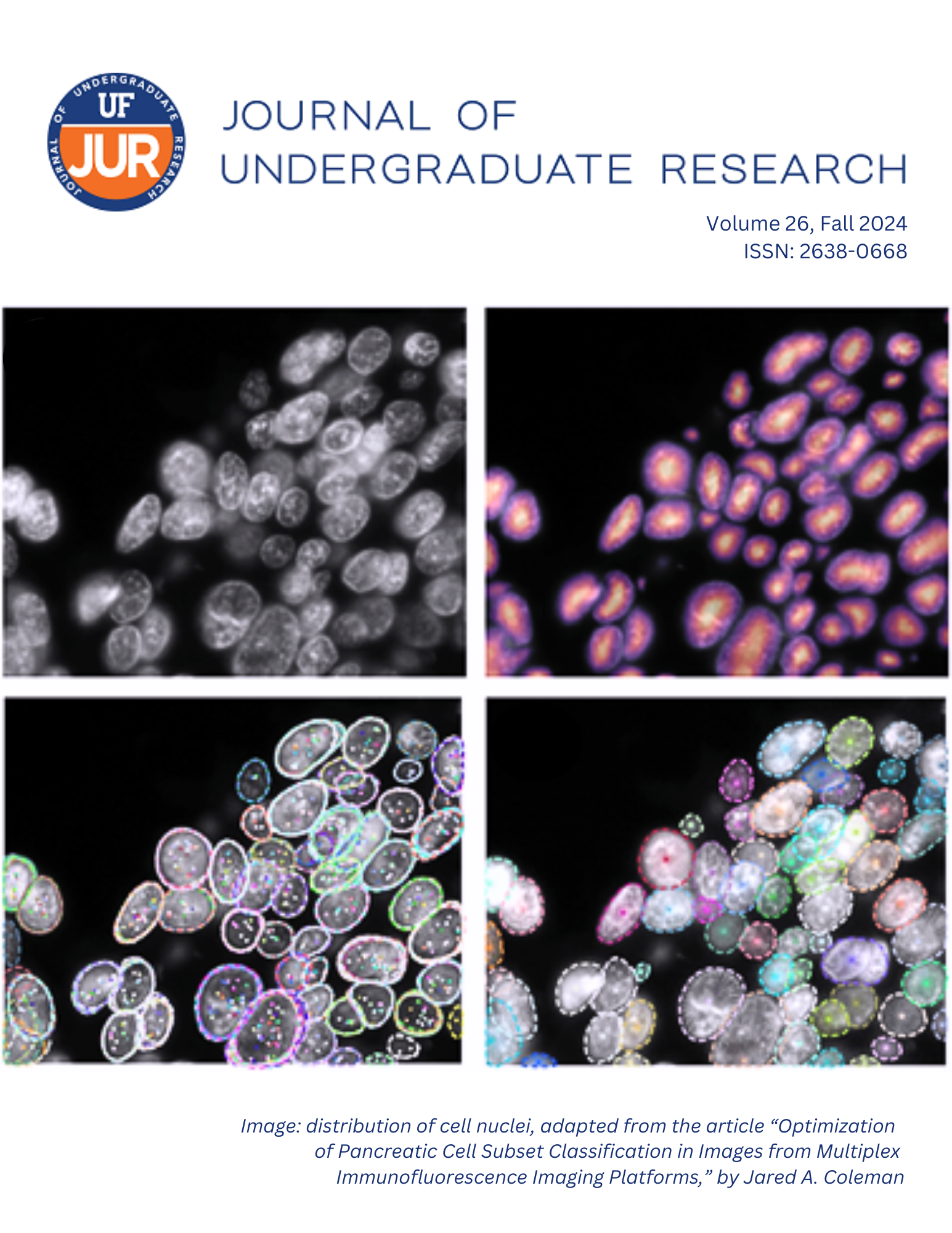Antimicrobial Resistance Gene Carriage is not Associated with Uremic Toxin Levels in Chronic Kidney Disease Patients
DOI:
https://doi.org/10.32473/ufjur.26.135374Keywords:
antimicrobial resistance, chronic kidney disease, gut microbiomeAbstract
In chronic kidney disease (CKD), uremic toxin molecules build up and risk of infection increase overtime, making the presence of antimicrobial resistant (AMR) bacteria in the gut more problematic with advancing disease. This study assessed if serum levels of uremic toxins and gut carriage of AMR genes are correlated in individuals with CKD. Whole metagenomic sequencing of stool samples and measured levels of 4 uremic toxins from 21 individuals with CKD were obtained. Multivariable, multivariate linear regression was performed with total abundance of AMR genes and abundance of specific drug classes of AMR genes as outcome variables and serum levels of four uremic toxins as predictor variables. Beta diversity differences of AMR genes were visualized using non-metric multidimensional scaling (NMDS) based on robust Aitchison distances and tested using PERMANOVA. There were no significant associations between uremic toxin levels and AMR gene abundance, or with any of the drug classes of AMR genes. There were no significant differences in beta diversity of AMR genes. These null findings suggest that increased uremic toxin levels are not associated with an increase in AMR carriage, and therefore uremia does not appear to be a direct cause of increased resistant bacteria in patients with more severe CKD.
Metrics
Downloads
Published
Issue
Section
License
Copyright (c) 2024 Julia Quinones, Wendy Dahl, Diana Taft

This work is licensed under a Creative Commons Attribution-NonCommercial 4.0 International License.
Some journals stipulate that submitted articles cannot be under consideration for publication or published in another journal. The student-author and mentor have the option of determining which journal the paper will be submitted to first. UF JUR accepts papers that have been published in other journals or might be published in the future. It is the responsibility of the student-author and mentor to determine whether another journal will accept a paper that has been published in UF JUR.

